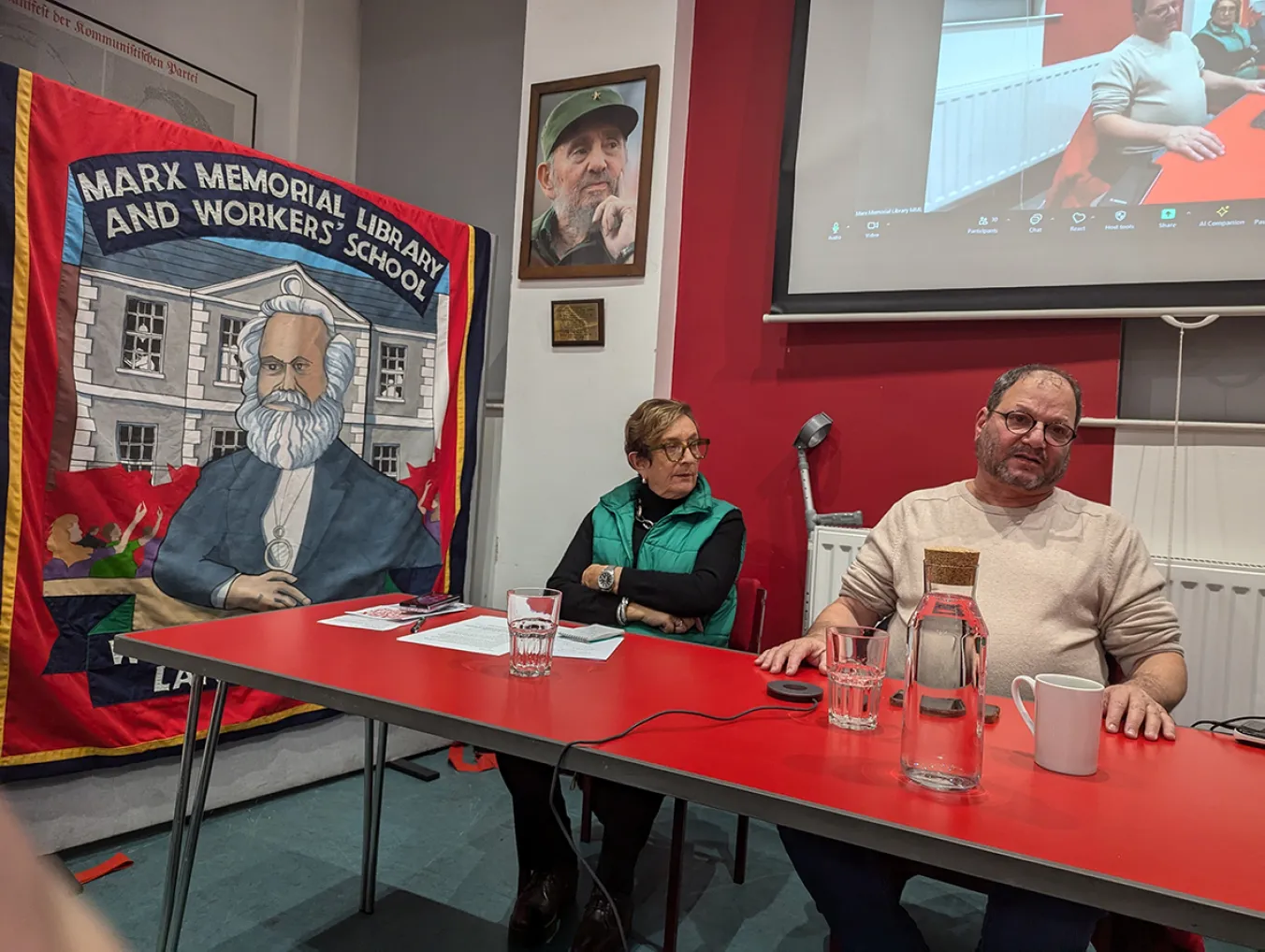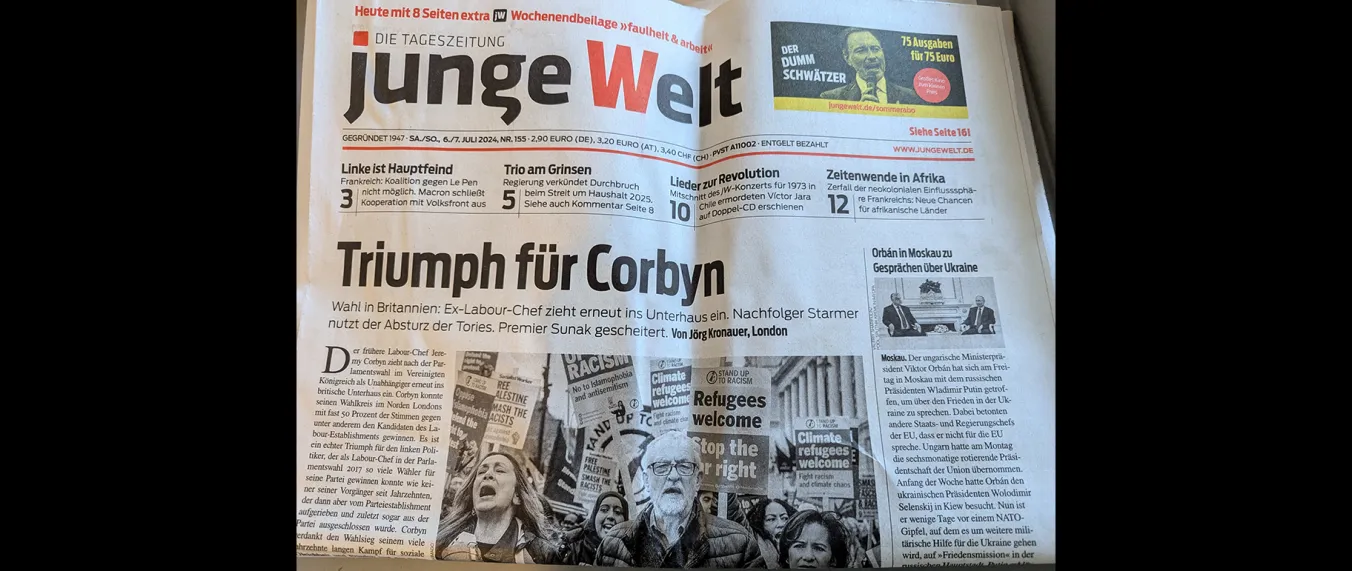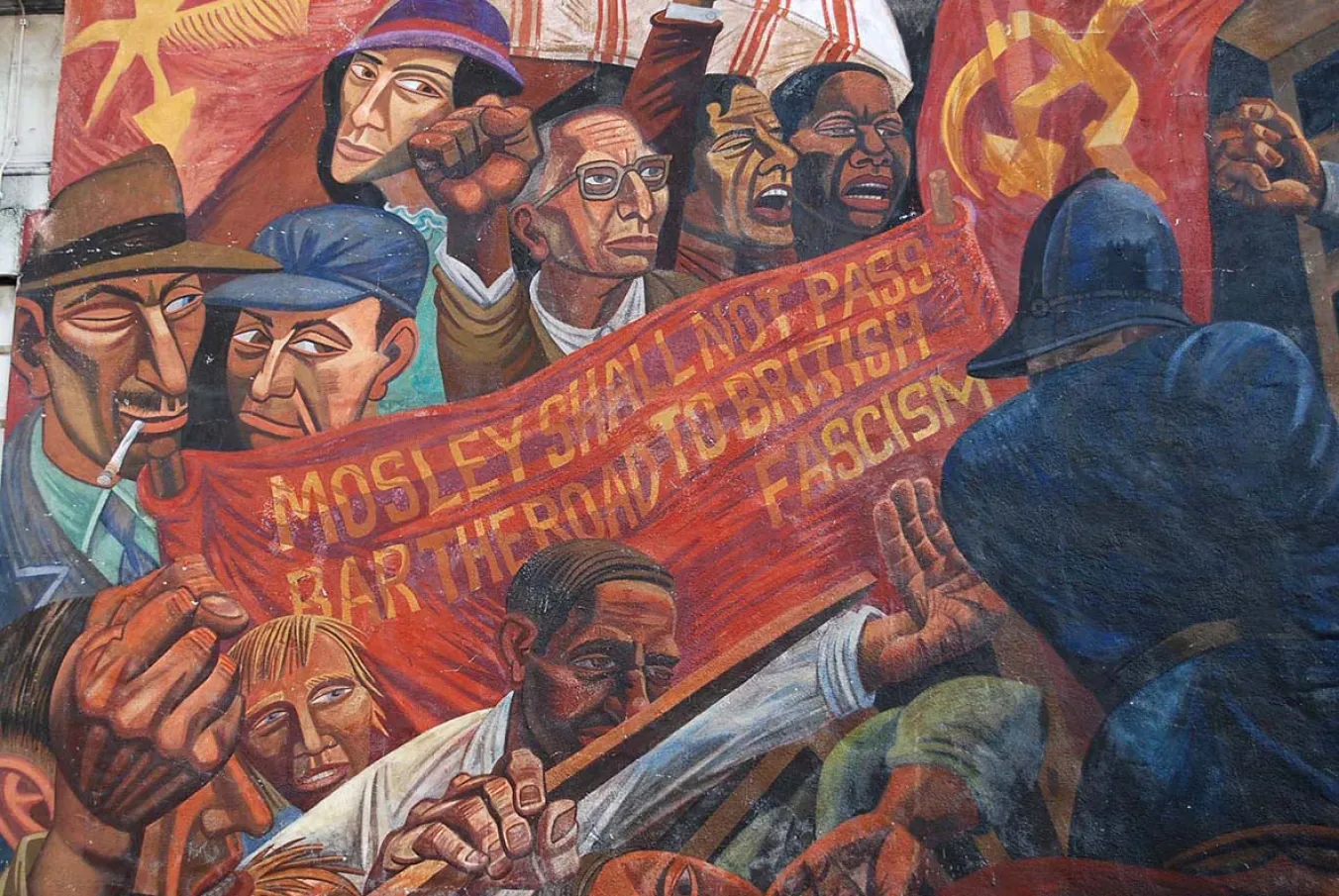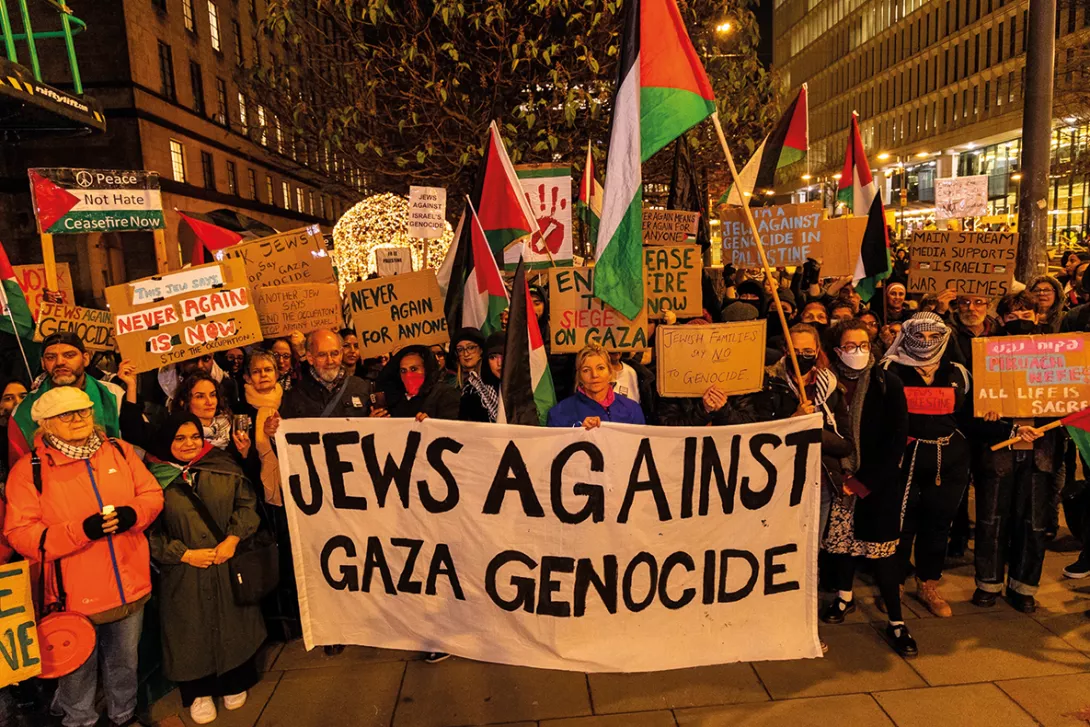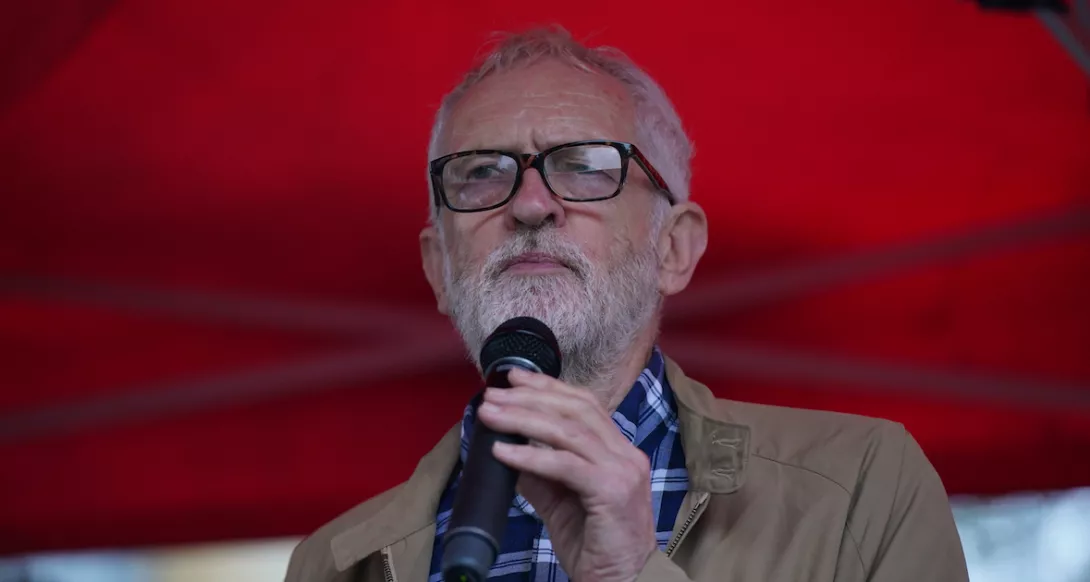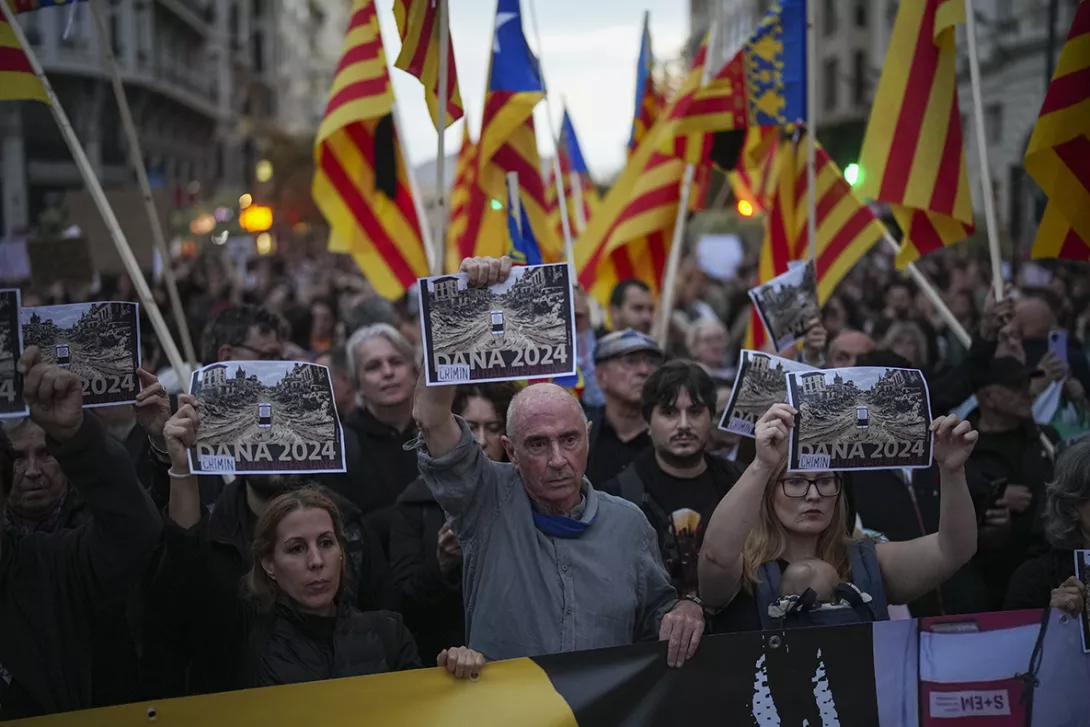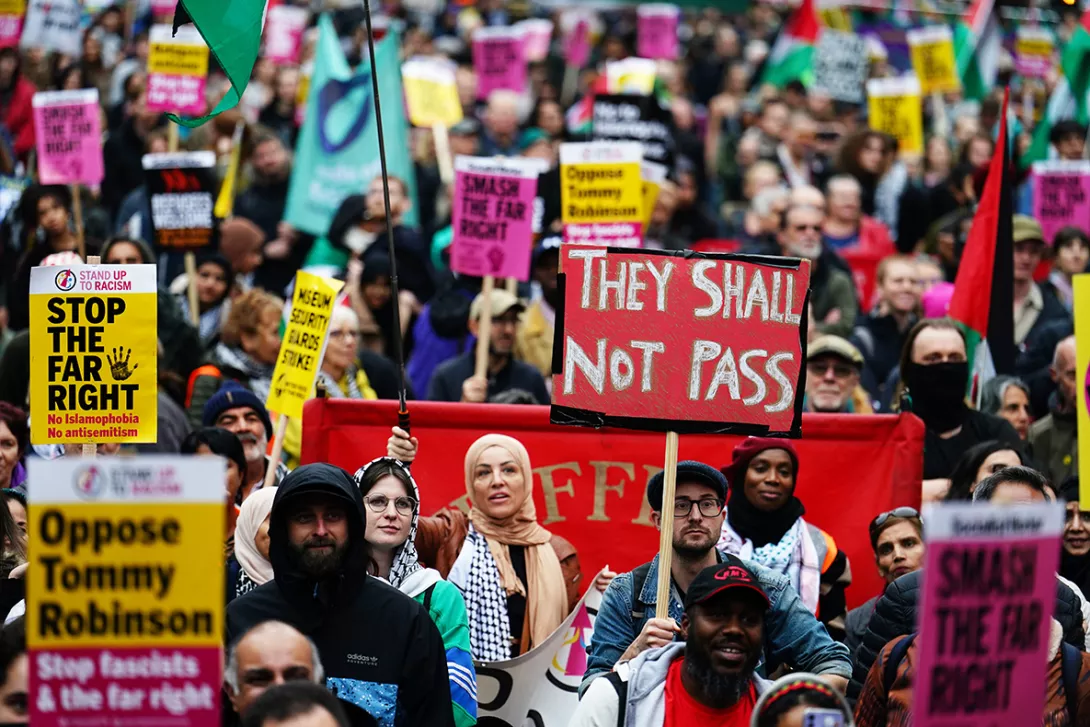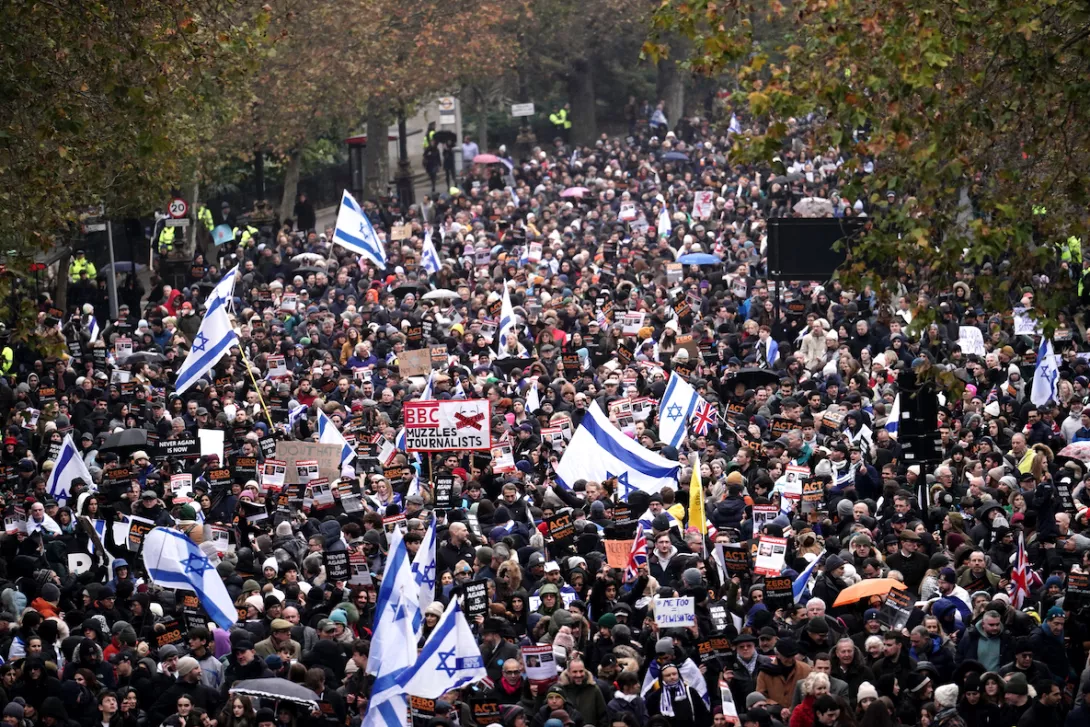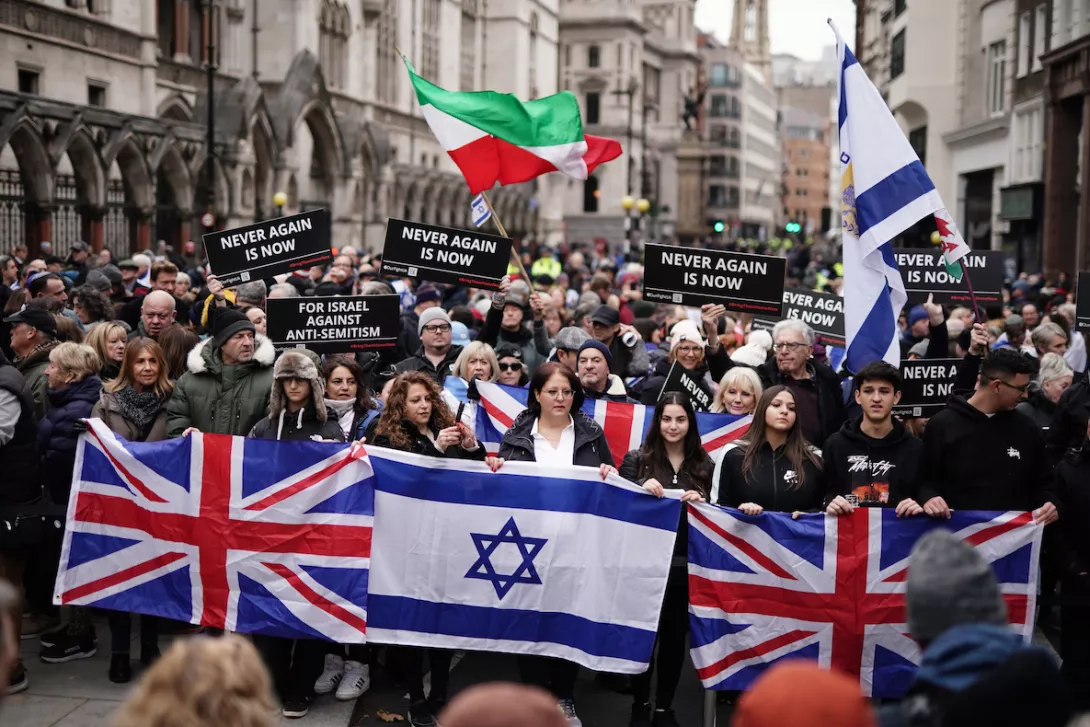
TODAY’S mass London demonstration against anti-semitism raises critical questions for the left.
It saw tens of thousands march in what has been called the biggest mobilisation of the Jewish community since the Battle of Cable Street in 1936.
Politically it looked nothing like that heroic chapter in the East End’s history. Cable Street was unambiguously of the left, organised by communist and socialist Jews. It was anti-Establishment, taking on a police-sanctioned march by Oswald Mosley’s Blackshirts, and in defiance of the Board of Deputies of British Jews, which advised Jewish people to stay at home.
That was obviously not the case today, on a march attended by Boris Johnson.
The charity that organised it, the Campaign Against Anti-semitism, rose to prominence as one of the most virulent opponents of Jeremy Corbyn’s socialist leadership of the Labour Party, and was criticised at the time for platforming racist voices so long as they were directed against him.
That said, the campaign clearly rejected race-baiting rabble-rouser Tommy Robinson’s attempt to associate himself with today’s demo.
And the numbers attending point to real concern among British Jews that anti-semitism is on the rise.
It is catastrophic for the left, which has always led the anti-racist struggle, if Jewish communities do not trust it to defend them against anti-semitism.
It opens up space for cynical Tories like Johnson to pose as opponents of anti-semitism to advance reactionary political agendas.
And it facilitates a very traditional divide-and-rule tactic turning minority communities against each other. Campaign Against Anti-semitism chief executive Gideon Falter must be accused of this for remarks which echo Suella Braverman’s efforts to smear Palestine solidarity demos as anti-semitic: “We have witnessed mass criminality, including glorification of terrorism, support for banned terrorist organisations such as Hamas…”
Britain is not alone in facing this dilemma. This month the French left was split on how to respond to a national demonstration called against anti-semitism by leading figures in the French state, in which the far-right National Rally of Marine Le Pen took part.
The French Communist Party marched, holding that opposition to anti-semitism was non-negotiable and should not be conceded to the right. Jean-Luc Melenchon’s France Unbowed did not, arguing that the demo was an attempt to conflate anti-semitism with opposition to Israel’s brutal assault on Gaza and whitewash the French government’s appalling record of Islamophobic racism. Both had a point.
We must reject any hierarchy of racisms. The oppressed and dispossessed deserve justice, and silence in order to avoid offence is cowardice. Attitudes like that of Margaret Hodge, who once claimed there was a “fine line” between support for Palestinian national rights and anti-semitism, are a dereliction of duty.
We should also oppose those smearing Muslims as anti-semitic, a tactic deployed by the right to justify racist immigration and policing policies in the name of opposition to racism.
But the left must also work to earn the confidence of Jewish communities that we will not tolerate any expression of anti-semitism.
That does not mean failing to challenge malicious accusations like so many levelled at Corbyn and his supporters.
It does mean calling out conspiracy theories, rejecting any conflation of Jewish people with the actions of the state of Israel, and confronting those who from ignorance or prejudice perpetuate tropes about Jews’ supposed financial or political influence.
It means rebuilding a mass anti-racist movement with prominent Jewish voices alongside those of black and other oppressed minorities. Jews have among the proudest histories of socialist internationalism.
Only if our anti-racism is comprehensive and consistent can we reclaim leadership of a struggle against anti-semitism that ruling-class and state actors misrepresent for their own ends. The profile of today’s march suggests this will not be easy, but it must be done.
